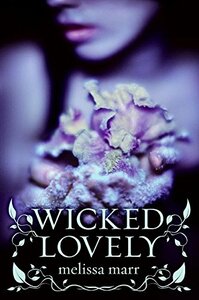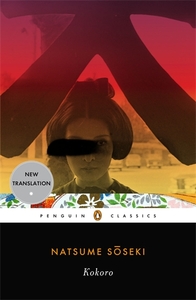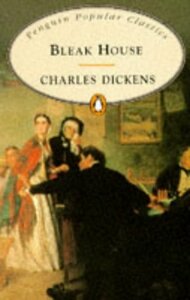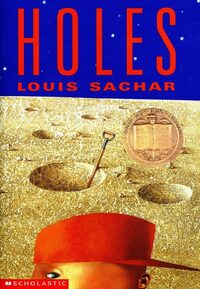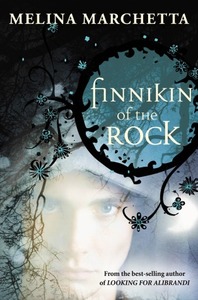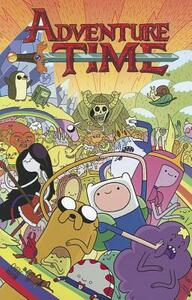Take a photo of a barcode or cover
__ceecee__'s Reviews (414)
*2.5 stars On one hand I really loved the faeries. Their strange and enchanting descriptions (e.g. he fills the room with sunlight - literally, she leaves icicles wherever she walks on, etc.) could really suck you in. I am so into that. I was initially hooked on the Seelie Court ever since I read them in City of Bones.
On the other hand, the premises were a little far-fetched and I could not care for Ash or Seth or Keenan.
So Keenan is the son of The Winter Queen and the late Summer King. Keenan is the new Summer King but he can't rule as a Summer King without a Summer Queen. But then why isn't there a Winter King to the Winter Queen? Or a pair of monarchs in the Dark Court and Seelie Court? It's only in the Summer Court where they need a King and Queen? And how on earth did the evil Winter Queen and late Summer King get it on, and produce Keenan in the first place? The Winter Queen, Beira, is all evil and only wants to rule the world in perpetual winter, but the real world seems as normal as ever, tit didn't seem affected by this Summer Court vs Winter Court thing which has apparently gone on for hundreds of years.
On top of that, Keenan needs to search for the Summer Queen all these years, who is a mortal, and it could be anyone. How does he even choose one? Like choose one random girl and hope she's the one? And then when the girl is unknowingly chosen, she apparently becomes a Summer Fey and she can't return to mortality. So she's basically doomed to become a faery, without her consent, unless the prospect of being a faery eventually warms up to her. And then there's this test where the girl chooses or not to take some staff to see if she really is the Summer Queen, but she can choose not to take the staff, because she'll risk being a Winter Fey - all cold and dead-looking - if she isn't the One. Also, Keenan has to court the girl and make her fall in love with him, but if she isn't the One, she basically becomes a member of his harem. Forever.
LIKE WUUUUUTTT?
I only read this because I had been given [b:Fragile Eternity|5152561|Fragile Eternity (Wicked Lovely, #3)|Melissa Marr|http://d.gr-assets.com/books/1327813714s/5152561.jpg|5219564] as a birthday gift and I thought I couldn't understand that book if I didn't read the first book first. However, I don't think I got much from Wicked Lovely. Everything I read in WL was pretty much hinted at in the first few pages of Fragile Eternity. There wasn't even any in-depth explanation of how ALL THIS came to be. Which was what I was hoping for.
So yeah, in conclusion, I loved the creation of the faeries, but not everything else.
On the other hand, the premises were a little far-fetched and I could not care for Ash or Seth or Keenan.
So Keenan is the son of The Winter Queen and the late Summer King. Keenan is the new Summer King but he can't rule as a Summer King without a Summer Queen. But then why isn't there a Winter King to the Winter Queen? Or a pair of monarchs in the Dark Court and Seelie Court? It's only in the Summer Court where they need a King and Queen? And how on earth did the evil Winter Queen and late Summer King get it on, and produce Keenan in the first place? The Winter Queen, Beira, is all evil and only wants to rule the world in perpetual winter, but the real world seems as normal as ever, tit didn't seem affected by this Summer Court vs Winter Court thing which has apparently gone on for hundreds of years.
On top of that, Keenan needs to search for the Summer Queen all these years, who is a mortal, and it could be anyone. How does he even choose one? Like choose one random girl and hope she's the one? And then when the girl is unknowingly chosen, she apparently becomes a Summer Fey and she can't return to mortality. So she's basically doomed to become a faery, without her consent, unless the prospect of being a faery eventually warms up to her. And then there's this test where the girl chooses or not to take some staff to see if she really is the Summer Queen, but she can choose not to take the staff, because she'll risk being a Winter Fey - all cold and dead-looking - if she isn't the One. Also, Keenan has to court the girl and make her fall in love with him, but if she isn't the One, she basically becomes a member of his harem. Forever.
LIKE WUUUUUTTT?
I only read this because I had been given [b:Fragile Eternity|5152561|Fragile Eternity (Wicked Lovely, #3)|Melissa Marr|http://d.gr-assets.com/books/1327813714s/5152561.jpg|5219564] as a birthday gift and I thought I couldn't understand that book if I didn't read the first book first. However, I don't think I got much from Wicked Lovely. Everything I read in WL was pretty much hinted at in the first few pages of Fragile Eternity. There wasn't even any in-depth explanation of how ALL THIS came to be. Which was what I was hoping for.
So yeah, in conclusion, I loved the creation of the faeries, but not everything else.
You like Japan? Read Natsume Soseki.
I hope I don't sound racist when I recommend this to people who like that "Japanese melancholic vibe" as if all Japanese people are morose or anything. I grew up loving anime, and if you are familiar with anime, you'll know anime is weird but hilarious all the same. But then, I also watch Japanese films and they are pretty damn melancholic. These bittersweet films with simple themes that just make your heart ache. I really think it's characteristic of "Japanese" just as much as their quirky anime and game shows. And I suppose they are two sides of the same coin - the hilarity in juxtaposition of its melancholy.
I think Kokoro is indeed very "Japanese". I enjoyed reading it because I enjoy the simple serenity and directness of Japanese media. In fact, while I was reading this, I imagined I was watching a Japanese film. Circa time of Memoirs of a Geisha, and my beloved Rurouni Kenshin.
Also, Kokoro was authored by one of the most popular Japanese novelist of all time, and if you even had a little interest in Japan, you would know Kokoro. From what I understand in its Introduction, this novel is widely known to everyone in Japan.
It tells of the life of Sensei in the time the narrator, a young man, meets and befriends him and of the shadow that plagues Sensei's existence.
Now comes the hard part where I have to go through that intellectual detail that the novel is really about. I am utterly unreliable in this area. Is it enough to say "Read the Introduction after you read the novel?"
Kokoro was published in 1914, and the events in the novel were set in 1912, around the time emperor Meiji died. The Meiji era signaled a new era in Japan - the opening of Japanese gates to Western civilization and an end to feudalism and the samurai way. *Insert intricacies of Japanese history and culture*
In my own innocent understanding: It's about the conflicts of the old and the new.
And it's also about human relationships and moral dilemmas.
...
...
...
Ugh, I just can't review this properly.
It's a pretty good novel, okay? Even with its flaw. I friggin love that melancholic vibe. So yeah, *4 stars.
I hope I don't sound racist when I recommend this to people who like that "Japanese melancholic vibe" as if all Japanese people are morose or anything. I grew up loving anime, and if you are familiar with anime, you'll know anime is weird but hilarious all the same. But then, I also watch Japanese films and they are pretty damn melancholic. These bittersweet films with simple themes that just make your heart ache. I really think it's characteristic of "Japanese" just as much as their quirky anime and game shows. And I suppose they are two sides of the same coin - the hilarity in juxtaposition of its melancholy.
I think Kokoro is indeed very "Japanese". I enjoyed reading it because I enjoy the simple serenity and directness of Japanese media. In fact, while I was reading this, I imagined I was watching a Japanese film. Circa time of Memoirs of a Geisha, and my beloved Rurouni Kenshin.
Also, Kokoro was authored by one of the most popular Japanese novelist of all time, and if you even had a little interest in Japan, you would know Kokoro. From what I understand in its Introduction, this novel is widely known to everyone in Japan.
It tells of the life of Sensei in the time the narrator, a young man, meets and befriends him and of the shadow that plagues Sensei's existence.
Now comes the hard part where I have to go through that intellectual detail that the novel is really about. I am utterly unreliable in this area. Is it enough to say "Read the Introduction after you read the novel?"
Kokoro was published in 1914, and the events in the novel were set in 1912, around the time emperor Meiji died. The Meiji era signaled a new era in Japan - the opening of Japanese gates to Western civilization and an end to feudalism and the samurai way. *Insert intricacies of Japanese history and culture*
In my own innocent understanding: It's about the conflicts of the old and the new.
And it's also about human relationships and moral dilemmas.
...
...
...
Ugh, I just can't review this properly.
It's a pretty good novel, okay? Even with its flaw. I friggin love that melancholic vibe. So yeah, *4 stars.
I can't believe I tortured myself yet again with a YA love story, especially since I'm going to be

Apparently, I'm that much of a masochist.
Fortunately, this isn't just a love story.
All her life, Jeeta has come to expect that after she graduates, nothing will matter except getting married to an eligible man, a man whom her mother will arrange for her. Her eldest sister, after many years of trying, finally gets married. It's only a matter of time before her second sister gets married (it's easy, she's pretty), and finally it will be Jeeta's turn. She doesn't think it will be that easy, nor does her mother, since Jeeta has undesirably dark skin, and a quick and sharp tongue. Jeeta starts to question whether or not to follow tradition when she meets Neel, the cousin of her new-found friend.
This book lets you see the good and bad side of tradition, especially that of an arranged marriage. I personally feel that passionate love is overrated anyway, and I could live with an arranged marriage. It's not just about passion and love, but a mutual respect for each other, and the desire to build something good. Like Antoine Saint-Exupery said:
"Love does not consist in gazing at each other, but in looking outward together in the same direction."
Which just so happens to be one of my favorite quotes.
Jeeta also, along the course of the book, discovers the strengths and abilities she's capable of, and also comes to terms with her mother about custom versus her desire to make a career for herself.
Of course, I can't forget the love angle. Neel and Jeeta, well, it's first love, and I have to say I envy Jeeta. When Jeeta was falling in love with Neel, dang, I felt it. When she was spending time with him, I wished I had someone like Neel to spend that time with. Theirs is a romance quiet but strong, but not without flaws. Exactly my cup of tea.
In the end, it was all about Jeeta, and her coming of age. I'm glad Jeeta came out of it with much more confidence in herself.
And maybe I can, too.
*4 stars. The second read was better. I think this is one of those books that get better with each rereading.

Apparently, I'm that much of a masochist.
Fortunately, this isn't just a love story.
All her life, Jeeta has come to expect that after she graduates, nothing will matter except getting married to an eligible man, a man whom her mother will arrange for her. Her eldest sister, after many years of trying, finally gets married. It's only a matter of time before her second sister gets married (it's easy, she's pretty), and finally it will be Jeeta's turn. She doesn't think it will be that easy, nor does her mother, since Jeeta has undesirably dark skin, and a quick and sharp tongue. Jeeta starts to question whether or not to follow tradition when she meets Neel, the cousin of her new-found friend.
This book lets you see the good and bad side of tradition, especially that of an arranged marriage. I personally feel that passionate love is overrated anyway, and I could live with an arranged marriage. It's not just about passion and love, but a mutual respect for each other, and the desire to build something good. Like Antoine Saint-Exupery said:
"Love does not consist in gazing at each other, but in looking outward together in the same direction."
Which just so happens to be one of my favorite quotes.
Jeeta also, along the course of the book, discovers the strengths and abilities she's capable of, and also comes to terms with her mother about custom versus her desire to make a career for herself.
Of course, I can't forget the love angle. Neel and Jeeta, well, it's first love, and I have to say I envy Jeeta. When Jeeta was falling in love with Neel, dang, I felt it. When she was spending time with him, I wished I had someone like Neel to spend that time with. Theirs is a romance quiet but strong, but not without flaws. Exactly my cup of tea.
In the end, it was all about Jeeta, and her coming of age. I'm glad Jeeta came out of it with much more confidence in herself.
And maybe I can, too.
*4 stars. The second read was better. I think this is one of those books that get better with each rereading.
Another hit! Once again, I thoroughly enjoyed Heyer's witty writing and dialogues and her colorful characters.
This has also quite hit home for me, personally. I know when something is just so emotional for me when I get a tingling sensation in my hands. And then my chest aches, and there's a threat of tears. And damn, when Drusilla was talking to herself in the mirror, convinced that the quiet gentleman, Gervase, would never have feelings for her, and that his amiability towards her was simply courteousness, I cried.
You see, as people perceive Drusilla (what a name! Even in Edwardian times it was an archaic name), she is sensible and totally plain. What hopes indeed does she have when there exists Marianne, a Beauty, of which Gervase can't even deny?
(Sometimes the synopses on Heyer's books can be so misleading. I had really thought that Gervase and his brother would be fighting over a woman.)
What I really love about Heyer is how she chooses her protagonists and the different way she conducts a romance. Though sometimes she writes novels about a Cynical Man falling for an Innocent (like in The Corinthian), she also writes about romances not based on passion, but a quiet kind of romance, and her characters are not your typical Hero and Heroine.
In The Quiet Gentleman, Gervase is soft, a dandy, but beneath his gentleness is a wily and intelligent man. Drusilla is plain, sensible and dependable. Throughout the book, no one really assumes she would catch the Earl's affections. And indeed, the book was not focused on how they fall in love, instead it focused on the threats to Gervase's life, and his relationship with his brother. The romance simply was there, you just had to read between the lines. And be delighted with how things worked out.
I loved how at first Gervase thought Drusilla was dull. Like all young men in their village, he was smitten with Marianne, the Beauty. I loved how Marianne was not presented as a Beauty without Brains or with a mean heart, but simply a Beauty, friendly and admired by women and men alike. And yet, look how things turned out.
*4.5 stars
This has also quite hit home for me, personally. I know when something is just so emotional for me when I get a tingling sensation in my hands. And then my chest aches, and there's a threat of tears. And damn, when Drusilla was talking to herself in the mirror, convinced that the quiet gentleman, Gervase, would never have feelings for her, and that his amiability towards her was simply courteousness, I cried.
You see, as people perceive Drusilla (what a name! Even in Edwardian times it was an archaic name), she is sensible and totally plain. What hopes indeed does she have when there exists Marianne, a Beauty, of which Gervase can't even deny?
(Sometimes the synopses on Heyer's books can be so misleading. I had really thought that Gervase and his brother would be fighting over a woman.)
What I really love about Heyer is how she chooses her protagonists and the different way she conducts a romance. Though sometimes she writes novels about a Cynical Man falling for an Innocent (like in The Corinthian), she also writes about romances not based on passion, but a quiet kind of romance, and her characters are not your typical Hero and Heroine.
In The Quiet Gentleman, Gervase is soft, a dandy, but beneath his gentleness is a wily and intelligent man. Drusilla is plain, sensible and dependable. Throughout the book, no one really assumes she would catch the Earl's affections. And indeed, the book was not focused on how they fall in love, instead it focused on the threats to Gervase's life, and his relationship with his brother. The romance simply was there, you just had to read between the lines. And be delighted with how things worked out.
I loved how at first Gervase thought Drusilla was dull. Like all young men in their village, he was smitten with Marianne, the Beauty. I loved how Marianne was not presented as a Beauty without Brains or with a mean heart, but simply a Beauty, friendly and admired by women and men alike. And yet, look how things turned out.
*4.5 stars
Spoiler
I still can't believe that resolution, though. Theo, the cousin, attempted to kill Gervase 3 times! And tried to frame Gervase's brother for it! And they let him go. Ah well.
Reread failed. *hangs head in shame*
I remember really liking this as a kid. I had a Charles Dickens phase, courtesy of [b:Matilda|39988|Matilda|Roald Dahl|https://d202m5krfqbpi5.cloudfront.net/books/1266457161s/39988.jpg|1015554]'s influence. Granted, I only read the abridges versions, but I do remember having been bored by the beginning of Bleak House, but then ended up loving it. Maybe it was because of Esther and Mr Woodcourt's romance.
And now that I've had an unabridged copy, I find I cannot finish this 800-page long novel. With size-5 font size (more or less). Really. Charles Dickens published this in monthly installments between March 1852 and September 1853. It took more than a year. Do you really expect me to read this in, say, a week? I could have. If not for my ever growing and ever tempting TBR Pile.
So I will have to put it on hold. I managed to read 22% of this book, and so far, I really appreciate Dickens's witty writing. It's only now that I've increased my vocabulary and comprehension that I got Dickens's humor. It's filled with diverse characters, with their own backstory, each managing to get to your heart, and their lives intertwine, it's amazing how Dickens wrote it.
For now I will have to satisfy myself with BBC's 2005 adaptation. I must say they stuck to the book (for the most I have read), but nothing beats reading the novel.
I remember really liking this as a kid. I had a Charles Dickens phase, courtesy of [b:Matilda|39988|Matilda|Roald Dahl|https://d202m5krfqbpi5.cloudfront.net/books/1266457161s/39988.jpg|1015554]'s influence. Granted, I only read the abridges versions, but I do remember having been bored by the beginning of Bleak House, but then ended up loving it. Maybe it was because of Esther and Mr Woodcourt's romance.
And now that I've had an unabridged copy, I find I cannot finish this 800-page long novel. With size-5 font size (more or less). Really. Charles Dickens published this in monthly installments between March 1852 and September 1853. It took more than a year. Do you really expect me to read this in, say, a week? I could have. If not for my ever growing and ever tempting TBR Pile.
So I will have to put it on hold. I managed to read 22% of this book, and so far, I really appreciate Dickens's witty writing. It's only now that I've increased my vocabulary and comprehension that I got Dickens's humor. It's filled with diverse characters, with their own backstory, each managing to get to your heart, and their lives intertwine, it's amazing how Dickens wrote it.
For now I will have to satisfy myself with BBC's 2005 adaptation. I must say they stuck to the book (for the most I have read), but nothing beats reading the novel.
I was actually wary of reading this one, because the friend who introduced me to Sarah Dessen was not that enthusiastic about her works. And yet, Sarah Dessen is apparently a big name in the YA genre. I've already read a John Green book (so-so), and now I thought I should finally read a Sarah Dessen. Besides, I was looking for a book which incorporates music (I still am), and Just Listen was up there in top recs. *
It started out okay. I think Annabel is relatable. It was pretty difficult, though, since I had to sludge through a lot of detailed narrations of the most mundane and insignificant things. That part I didn't like. I could have been saved a lot of pages to read.
I liked Owen and I'm happy he helped Annabel overcome her avoidant personality.
As usual, the ending got me. Usually, my impression of the book is based on how things were resolved. Too bad the resolution was after 85% of the book. I had to sludge through 85% conflict (like I said were just mundane narratives), and the resolution in the last 15% of the book?
It was a really good ending, though. One that satisfied me enough to make me really like the book. I think it really would be a good and worthy read for young adults. I liked the issues presented in the book, the sexual assault, the anorexia, etc. I didn't quite expect they'd handle the theme of music like that. It was okay. But another theme is change, and I loved that.
It started out okay. I think Annabel is relatable. It was pretty difficult, though, since I had to sludge through a lot of detailed narrations of the most mundane and insignificant things. That part I didn't like. I could have been saved a lot of pages to read.
I liked Owen and I'm happy he helped Annabel overcome her avoidant personality.
As usual, the ending got me. Usually, my impression of the book is based on how things were resolved. Too bad the resolution was after 85% of the book. I had to sludge through 85% conflict (like I said were just mundane narratives), and the resolution in the last 15% of the book?
It was a really good ending, though. One that satisfied me enough to make me really like the book. I think it really would be a good and worthy read for young adults. I liked the issues presented in the book, the sexual assault, the anorexia, etc. I didn't quite expect they'd handle the theme of music like that. It was okay. But another theme is change, and I loved that.
* p.s. if you happen to know a really good book which incorporates music (classical preferably) in an astonishing way, then please do let me know. I'm always up for a rec.
When I was young, I watched an anime series called Now and Then, Here and There and it was a difficult series to watch: full of brutality, violence, even rape, and kids actually watched this. It was depressing, yet it was so fascinating, and I will never be able to forget it. Good news, though, and spoiler alert: it had a happy ending.
The beginning of Finnikin of the Rock kind of reminded me of that show, because of the angry tone, the scenes of violence, and damn it was depressing, and I just began! It made me want to give up on the book altogether. Which may warn those of you who are not familiar with this series: This is not an easy book to read, and it may not be for everyone.
But man it was fascinating and thank God I didn't abandon this book (idk maybe I'm just biased towards the author), because it really got better. I don't know how Melina Marchetta does it, but she just makes it work. The book tells the reuniting of the people of Lumatere, who were torn apart when a curse was brought to their kingdom. Divided and lost, each group of Lumaterans found strife, struggling to find a new home for their people. Finnikin is that hope, and with the help of Evanjalin and his mentor Sir Topher they will undertake a journey that will lead them home, to reclaim their kingdom, even though that path will be paved with blood.
The book doesn't focus on the world building, but instead, it is a character study, with a little social commentary as well. This book just screamed Giiirrrrlll Poooweerrrr. And yes, the men are amazing as well, but the women are to be reckoned with. As the book got along, the characters found a way to balance Male and Female. I think it was a pervading theme: the yin and the yang, Light and Dark, Lagrami and Sagrami (the two goddesses worshipped separately by different Lumaterans), the goddess complete.
And though the book got off with an angry tone, as it went along, Melina showed humor as well, and love. Let's talk about the romance. Ugh. That was unexpectedly really pleasant. Like oh my glob I want something like this. I love it when the two protagonists are a match for each other. Like when the other one makes the other better, and stronger. Granted there was a little angst, but it was an enjoyable angst, and the ending rewarding.
*4.5 stars
The beginning of Finnikin of the Rock kind of reminded me of that show, because of the angry tone, the scenes of violence, and damn it was depressing, and I just began! It made me want to give up on the book altogether. Which may warn those of you who are not familiar with this series: This is not an easy book to read, and it may not be for everyone.
But man it was fascinating and thank God I didn't abandon this book (idk maybe I'm just biased towards the author), because it really got better. I don't know how Melina Marchetta does it, but she just makes it work. The book tells the reuniting of the people of Lumatere, who were torn apart when a curse was brought to their kingdom. Divided and lost, each group of Lumaterans found strife, struggling to find a new home for their people. Finnikin is that hope, and with the help of Evanjalin and his mentor Sir Topher they will undertake a journey that will lead them home, to reclaim their kingdom, even though that path will be paved with blood.
The book doesn't focus on the world building, but instead, it is a character study, with a little social commentary as well. This book just screamed Giiirrrrlll Poooweerrrr. And yes, the men are amazing as well, but the women are to be reckoned with. As the book got along, the characters found a way to balance Male and Female. I think it was a pervading theme: the yin and the yang, Light and Dark, Lagrami and Sagrami (the two goddesses worshipped separately by different Lumaterans), the goddess complete.
And though the book got off with an angry tone, as it went along, Melina showed humor as well, and love. Let's talk about the romance. Ugh. That was unexpectedly really pleasant. Like oh my glob I want something like this. I love it when the two protagonists are a match for each other. Like when the other one makes the other better, and stronger. Granted there was a little angst, but it was an enjoyable angst, and the ending rewarding.
*4.5 stars
May 2013 This book is as lovely as I remember. I feel goooood.
Sept.2012When you read about people loving a book, it's hard not to expect to like it. I've read so many books which people gushed over, but when I read it, I was like, meh. Thankfully, Dairy Queen did not disappoint. What a lucky day to have found this on a dark corner of a bookstore. I was never so entertained as much lately, nor did I read a book more quickly. It just made me feel good. I'm sorry it had to end so soon.
DJ Schwenk, the heroine, is charming and utterly likable. I just wanted to root for her up to the end, tell her off when she doesn't say the things she needs to say, but relieved to find out that she turned out just fine.
I can't wonder why this book is a highly recommended YA novel. It's full of the good stuff, the real stuff, on how it's hard to handle family, friends, school and crushes. DJ's cow metaphor is something to think about.
Basically, that's what this book is about. Being brave enough to look for something you're really happy to do, and do it. Which I really love. That, and the importance of saying things you should.
And what's a book I enjoy without it having that cute romance? Brian-the-jock (could-it-be-that-you're-actually-a-nice-person? Brian) and DJ have such a good chemistry, they look so cool, able to joke with each other like that, and Brian able to say what's on his mind, and DJ who finally has someone to really talk to. Their relationship isn't based on physical appearances (though it's not hard to argue that these two are actually good-looking people), it's not insta-love, and they both just mutually respect each other, despite differences, and the occasional conflict, which they patch up like an old married couple (ugh, how cute is that!) The development of their relationship is something that I respect. I wouldn't mind a Brian Nelson of my own. Not at all.
Dairy Queen is a book one must not miss. And 5 stars, because, it doesn't try hard, it's an awesome YA novel, and, the cuteness.
Sept.2012When you read about people loving a book, it's hard not to expect to like it. I've read so many books which people gushed over, but when I read it, I was like, meh. Thankfully, Dairy Queen did not disappoint. What a lucky day to have found this on a dark corner of a bookstore. I was never so entertained as much lately, nor did I read a book more quickly. It just made me feel good. I'm sorry it had to end so soon.
DJ Schwenk, the heroine, is charming and utterly likable. I just wanted to root for her up to the end, tell her off when she doesn't say the things she needs to say, but relieved to find out that she turned out just fine.
I can't wonder why this book is a highly recommended YA novel. It's full of the good stuff, the real stuff, on how it's hard to handle family, friends, school and crushes. DJ's cow metaphor is something to think about.
Everyone I looked at, their whole lives, did exactly what they were supposed to do
without even questioning it, without even wondering if they could
do something different.
Basically, that's what this book is about. Being brave enough to look for something you're really happy to do, and do it. Which I really love. That, and the importance of saying things you should.
But it turns out that even if I don’t talk a lot, when it’s something that matters I still have a lot to say.
And what's a book I enjoy without it having that cute romance? Brian-the-jock (could-it-be-that-you're-actually-a-nice-person? Brian) and DJ have such a good chemistry, they look so cool, able to joke with each other like that, and Brian able to say what's on his mind, and DJ who finally has someone to really talk to. Their relationship isn't based on physical appearances (though it's not hard to argue that these two are actually good-looking people), it's not insta-love, and they both just mutually respect each other, despite differences, and the occasional conflict, which they patch up like an old married couple (ugh, how cute is that!) The development of their relationship is something that I respect. I wouldn't mind a Brian Nelson of my own. Not at all.
Dairy Queen is a book one must not miss. And 5 stars, because, it doesn't try hard, it's an awesome YA novel, and, the cuteness.
